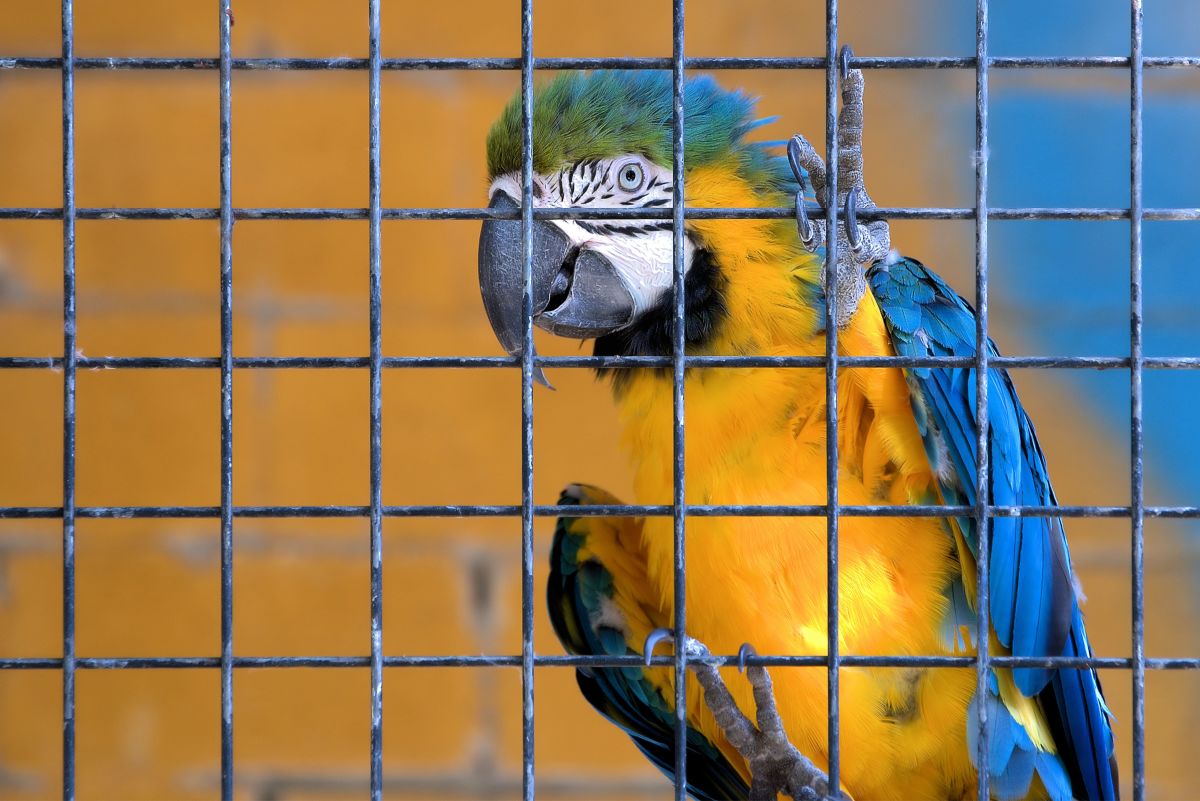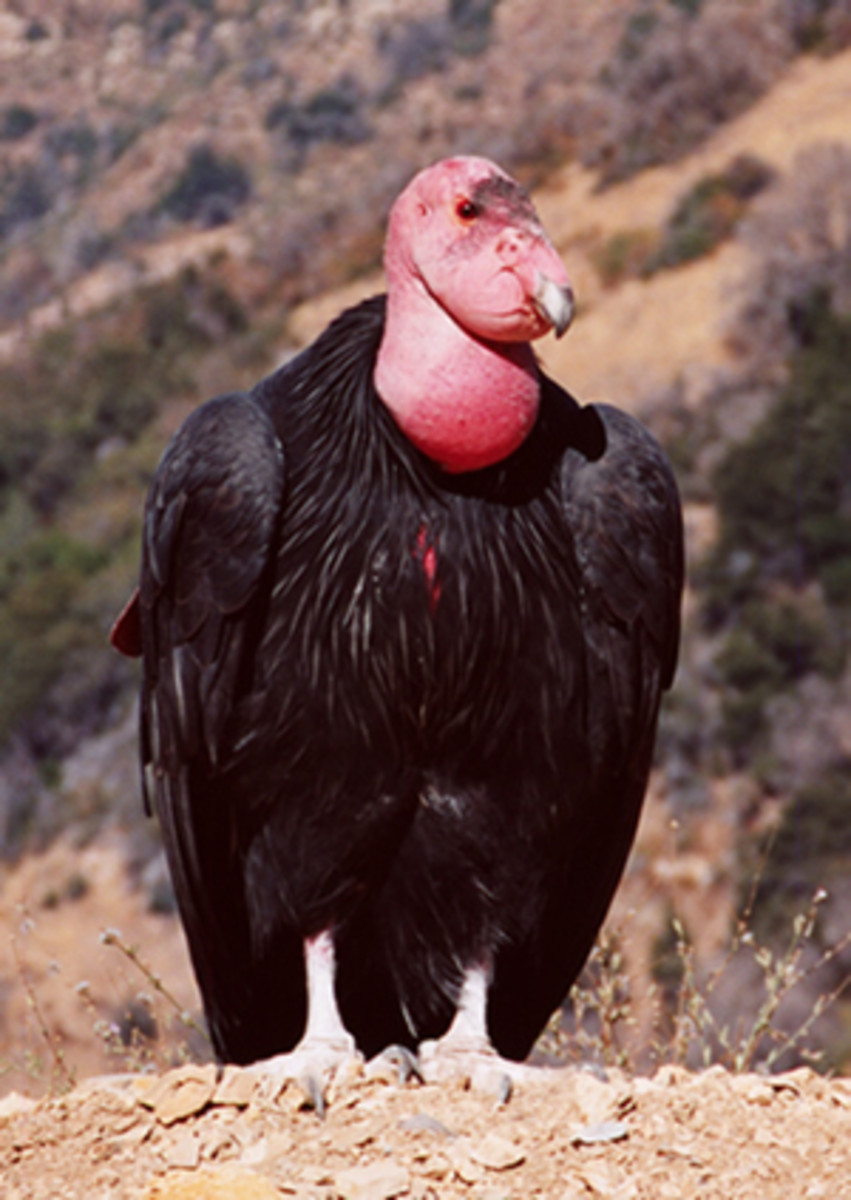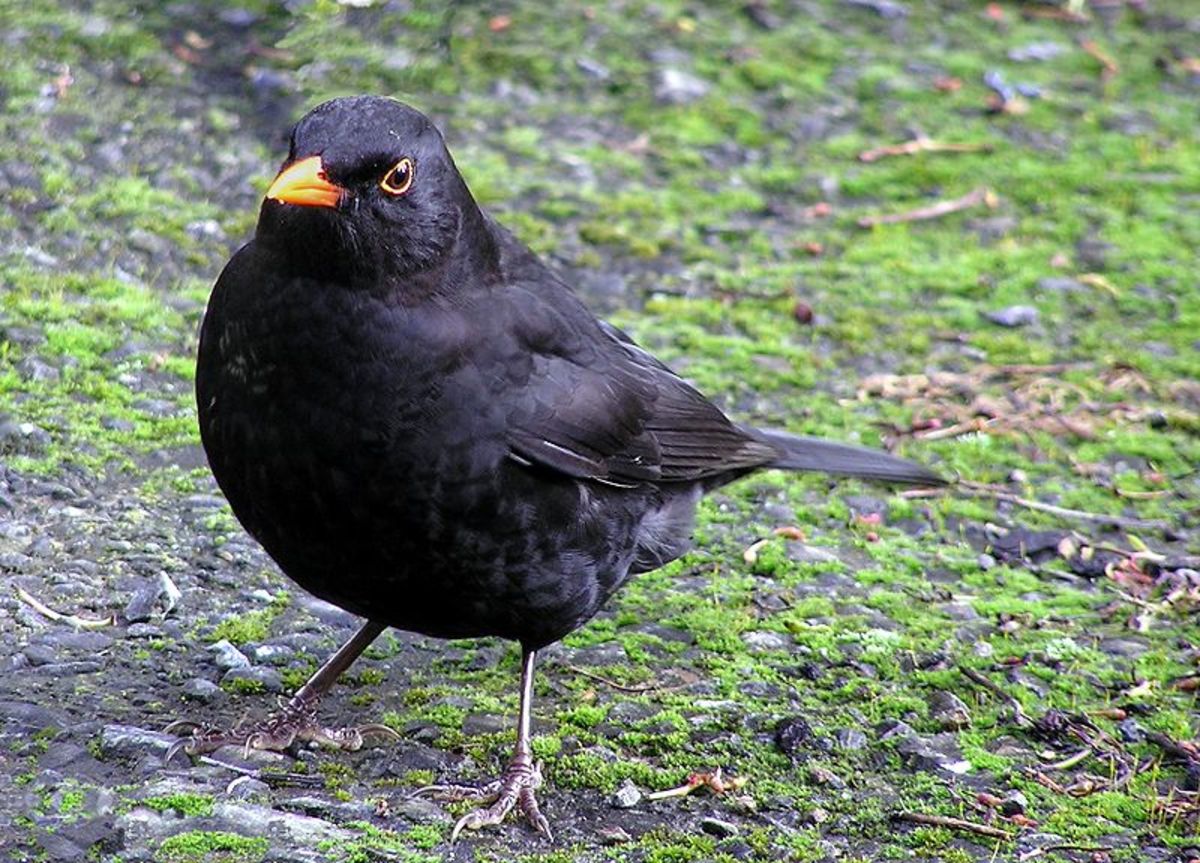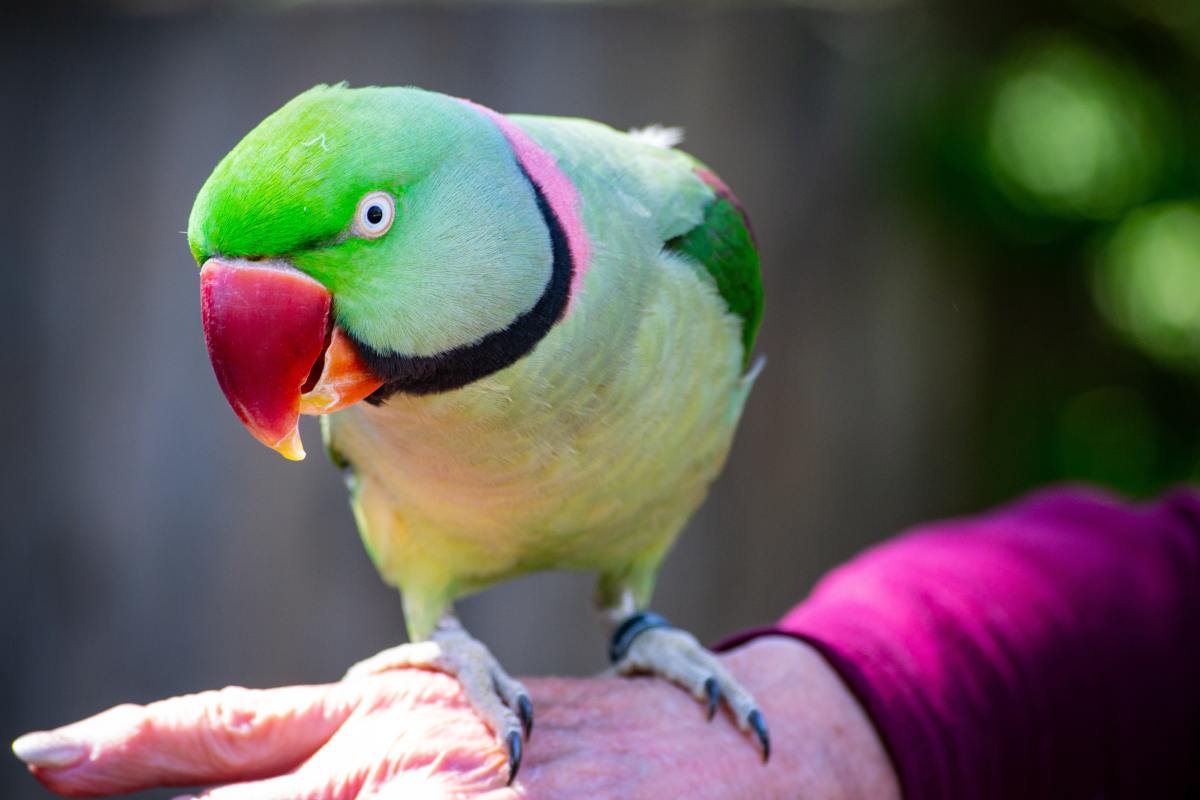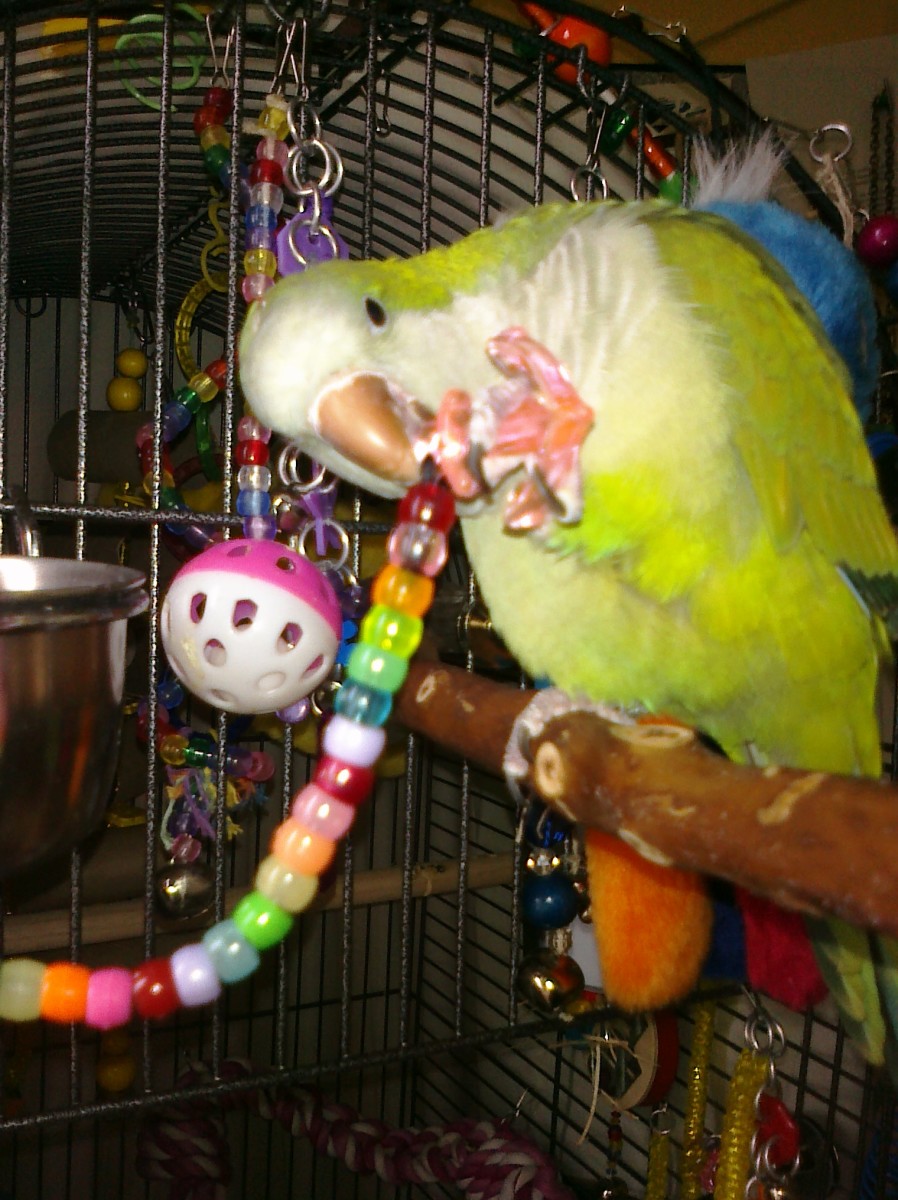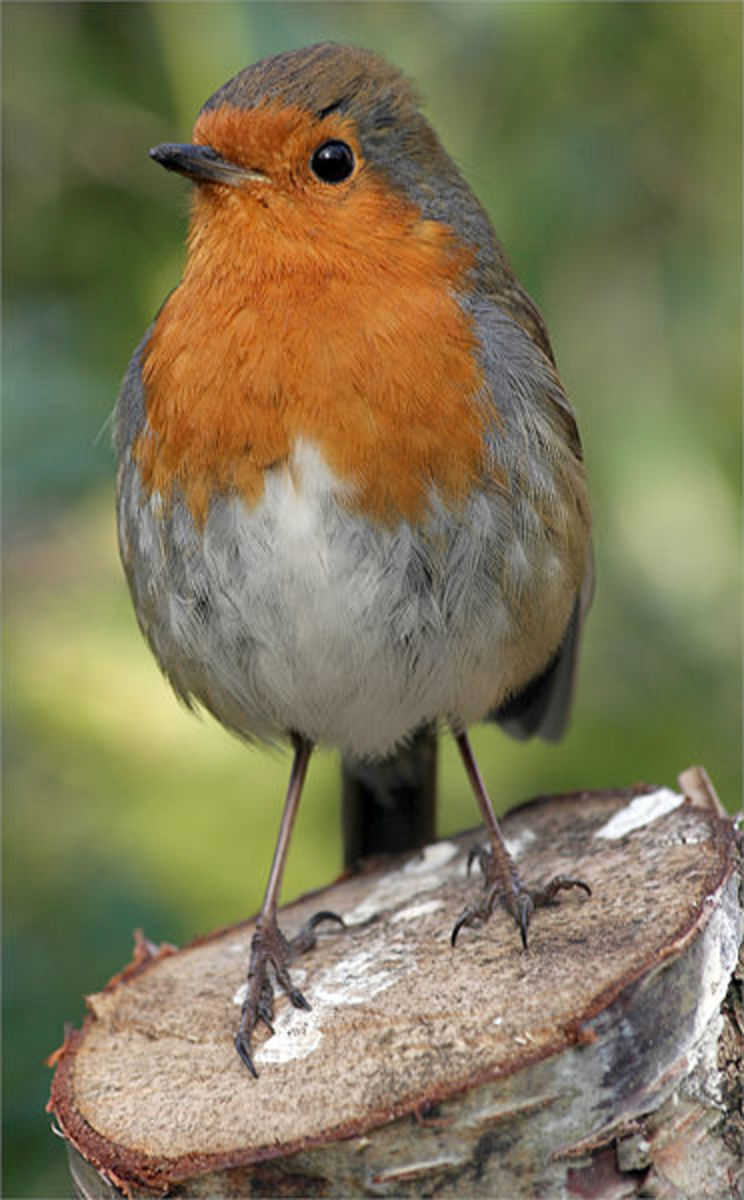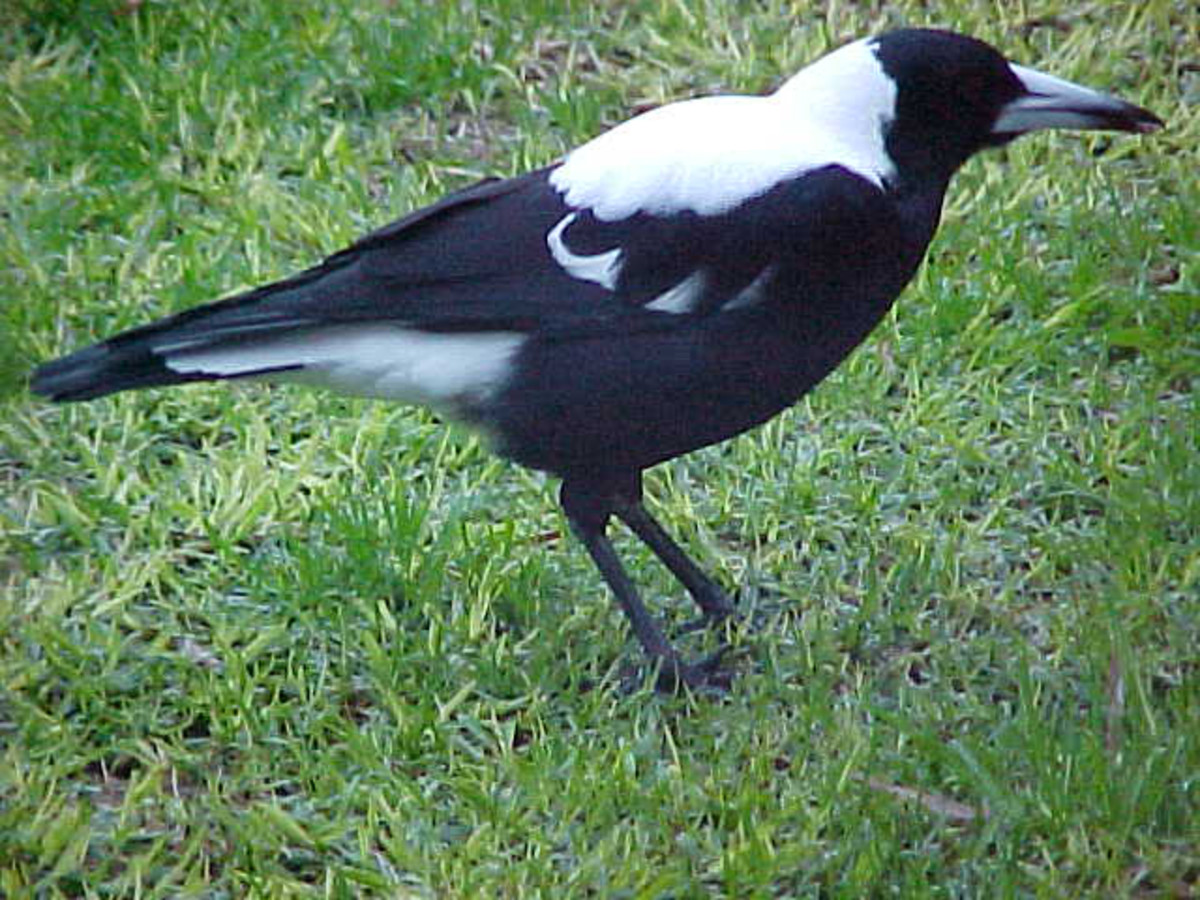How to Deal with a Hormonal Parrot
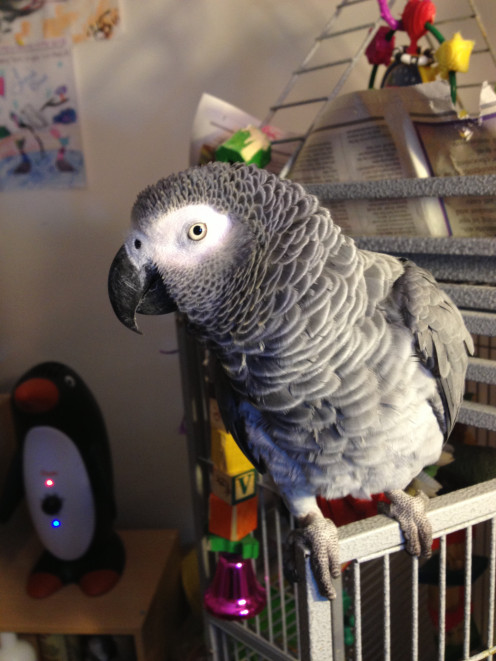
Ways to reduce breeding behaviors
It is our job as aviculturists to keep our birds happy and healthy. Accidentally touching them in ways that induce breeding cycles and increase hormones can lead to a wide array of heath issues including egg binding, plucking, enlarged gonads/ ovaries, and other reproductive problems. To avoid over-stimulating your bird, be sure to only pet on the head, beak, neck, and toes. Never stroke your bird under the wings, down the back, or across the length of their tail. These areas would only ever be touched by a perspective mate. By petting these sensitive areas, even briefly, you are telling your bird you are interested in being it's mate. Don't be a tease! Stimulation of these regions sends signals to birdie's brain that it's time to mate, which in turn sends hormones rushing into the blood stream.
Be sure to always speak calmly and softly around your avian companions. During this moody time, do not bring your bird around anyone/ anything he or she seems to be "angry" at. Discourage all mating advances by ignoring them and only rewarding positive behaviors.
Although all birds have a slightly different sleep schedule, it is suggested that a 12 hour dark period be maintained through out the entire year. For some birds, such as the African Grey, the long summer days stimulate hormones that tell the birds "it's time to mate!" Using light timers, blackout blinds, and dark cage covers can help keep the light schedule the same all year long.
Feeding your birds a nutritionally complete pellet diet is highly preferred over seed or nut based blends. The best choice is always to feed as many fruits, whole grains, and vegetables as possible. However, during your particular parrots mating season, it is suggested to limit variety, as increased variety can trigger hormones which may lead to breeding behaviors.

How to spot a hormonally stimulated bird
If your bird has chosen you, or anyone else in the household, to be their mate, certain breeding behaviors will be observed. They can be frustrating, painful, and sometimes drive loving bird owners to feel fed up. These behaviors include, but are not limited to; raising of the tail and lowering of the head, inappropriate rubbing on toys, bowls, or hands, small "peeping" type noises, extreme protective behaviors of "mate" including biting, lunging, and attacking others, shredding newspaper and toys, nesting, and regurgitating. In some more extreme cases, and during times of puberty or extreme stress, some parrots rip out their feathers in an attempt to cool off and reduce their raging hormone levels. This plucking is most often done on the feathers under the wings or on the belly on females. Birds who share habits may also rip feathers out of their partners.
- My Safe Bird Store | Discounted Bird Products | BIRD FREE ENVIRONMENT| Free Shipping Available
My Safe Bird Store provides discounted healthy and organic bird food and bird safe toys and accessories. Don't put your birds at risk. Our environment is TOTALLY BIRD FREE. Free and discounted shipping available.
My bird laid eggs! Now what?
If despite all of your efforts your female bird still lays infertile eggs, do not panic. As long as your bird is on a healthy diet high in calcium, laying a few eggs won't be a problem. In order to reduce chances of egg binding, allow the "mama" to sit on her eggs for as long as she sees fit. If your remove the eggs, she will usually just continue to lay them, putting her at risk for a calcium deficiency. The most important thing is to ensure the eggs are free from any fecal matter. Either invest in some replacement eggs or gently wipe the eggs down with each cage cleaning. Make sure to provide fresh cage bedding often.
The most eggs a bird will usually ever have in a clutch is 4. If your bird lays more than 4 eggs in a short period of time, it is highly suggested that you take your bird to an avian veterinarian. Adding fresh broccoli, dark leafy greens, almonds, and cuttlebone to your birds menu is highly recommended. Some birds lose interest in their eggs in a few days, some birds sit on them for 30 days. All you can do is give your bird time and let nature take it's course. However, if your bird is still trying to hatch her eggs after 4 weeks, throw the eggs away. She should lose interest in them around this time.
Is that all there is to it?
Keeping your bird cool, comfortable, and on a routine sleep schedule all help to keep their hormone levels in check. Avoid inappropriate touching and rewarding undesired behaviors. Giving your birds a chance to forage for their food keeps them occupied, active, and distracted. (Which also means quiet!) Always provide your bird with annual veterinary exams in order to protect the health of your beloved feathered friend.
Quiz on Reducing Mating Behaviors
view quiz statisticsPineapple Conure
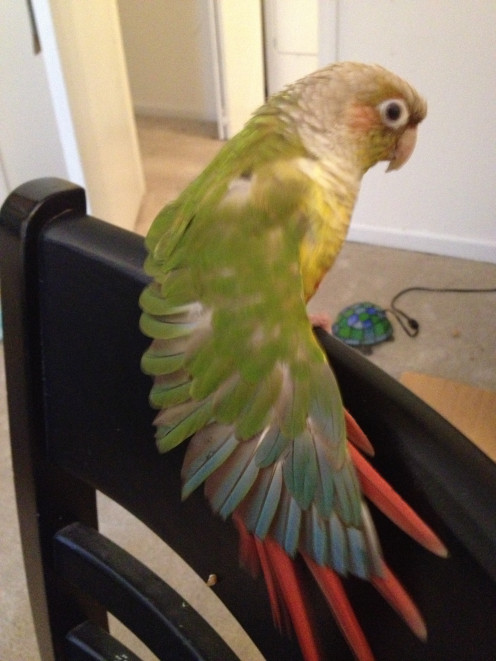
© 2014 Holly Starenchak Baukhagen

